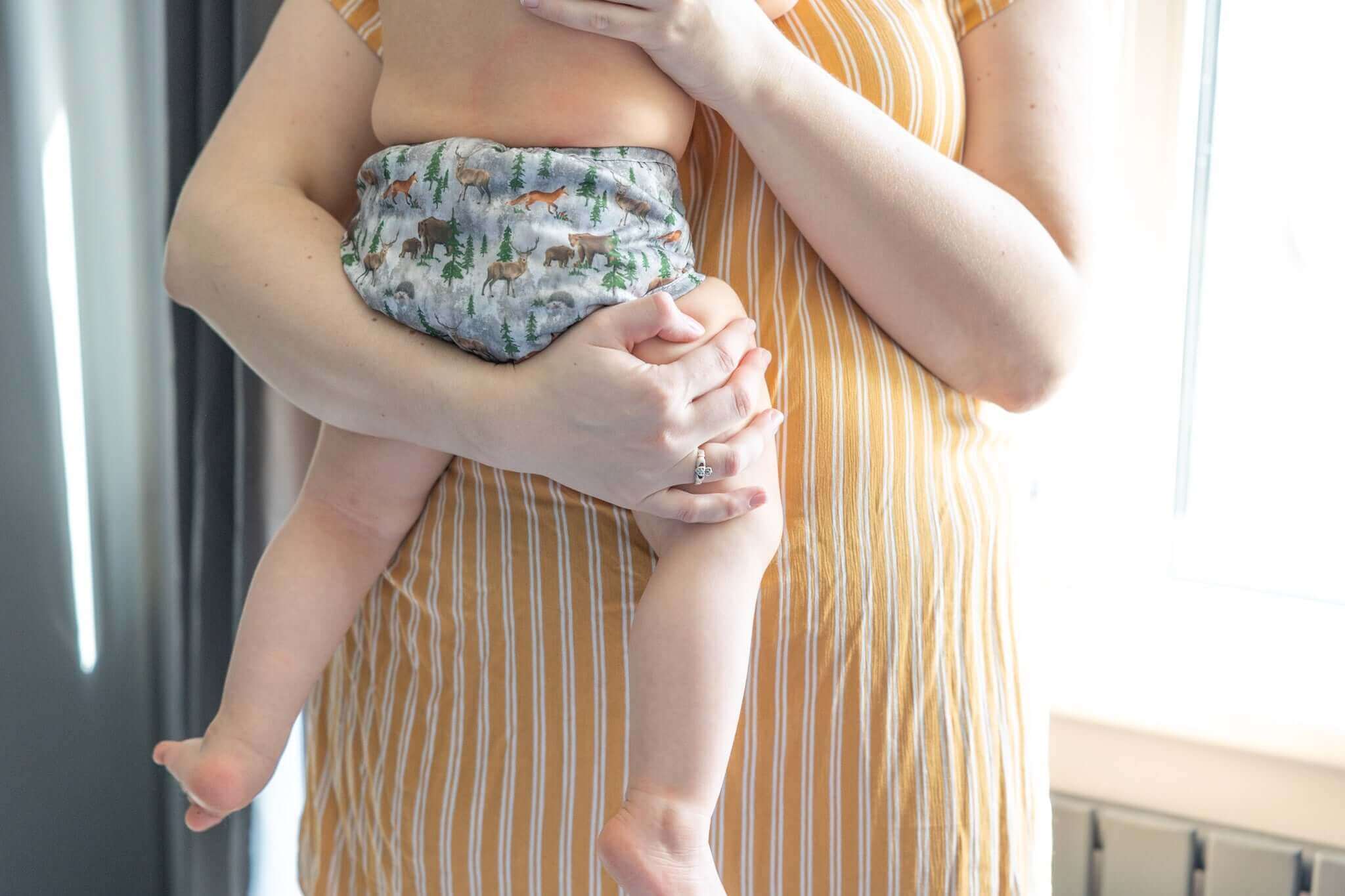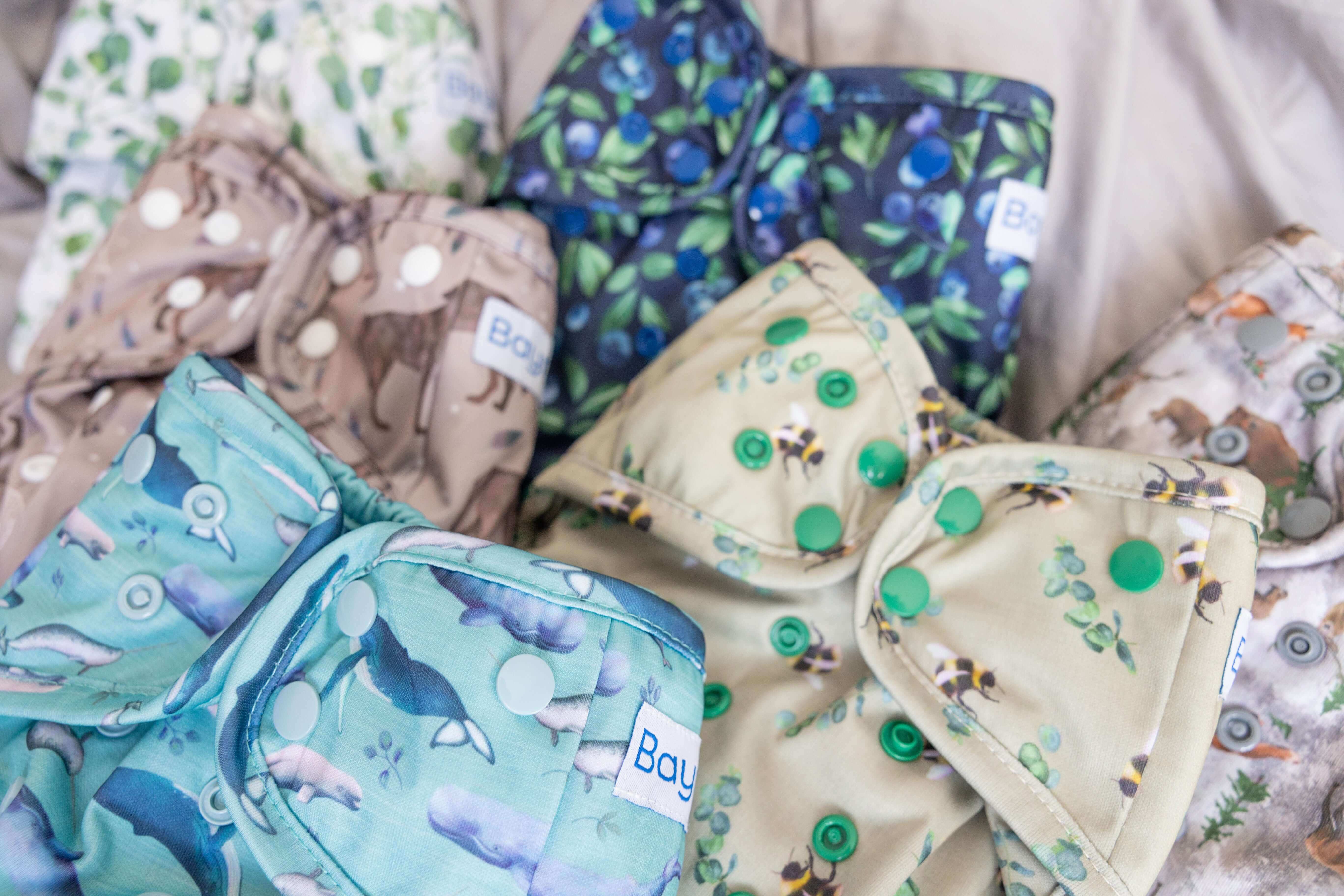
Cloth Diapers: Answers to questions that every new parent has
Since launching Bayrli, we have noticed many customers ask us the same questions.
So here we summarise them for you. Nine myths about reusable diapers that we fact bust for you.
The journey to reusable diapers is a mythical one, filled with many untruths and some truths. It is also remarkable just how many parents are given the wrong advice from resources who claim to be experts.
It’s all or nothing.
You don’t have to go all in. You should use reusable diapers exactly how you need to, and let them adapt to your lifestyle. Just because you choose to reuse doesn’t mean that a disposable diaper must never be bought again. They may still have their place in your routine and lifestyle. A short trip to town or a family meal out? Maybe a disposable will be popped into your Diaper Cube. If this suits you, there is no need to avoid this and no need to be ashamed about choosing a disposable diaper. One cloth diaper, when used from birth to potty, saves over 900 from going to landfill.
Getting started is too expensive.
At Bayrli we realise the upfront cost to reusable diapers can seem out of reach. But getting started with reusable diapers doesn’t have to be painful. With our interest free plans, we can choose to reuse for less than the monthly cost of disposable diapers. Alternatively, you can buy one or two at a time and build up your set gradually at your own pace. If you’re making the switch from disposable diapers, you will notice that with each passing month you buy fewer disposables, and you can use these savings to fund your next reusable cloth diaper. And don’t forget about baby showers and gifts! Family and friends love to gift diapers, and reusable diapers are becoming ever more popular simply because they look great and feel os soft. Finally, remember just how much you will spend on disposables: Bayrli cloth diapers can save you up to $3000 per baby.
They’re too much hassle.
This is a very common accusation, but let us rephrase this: Reusable diapers aren’t more work; they’re just different work. Most of us will buy reusable diapers in one go, either upfront or via an interest free plan. Disposables need to be bought weekly, and then disposed of weekly. And as we all saw during the height of COVID-19, it may take multiple trips to your grocery store to find disposable diapers in stock.
Using cloth diapers full-time will add at maximum two extra loads of washing a week. Simply pop them in the washing machine, switch to the dryer, and voila. It really is that simple.
Don’t cloth diapers use up so much water?
Doesn’t the extra washing mean they’re not much better for the environment. This is another very common accusation, especially by disposable diaper manufacturers. Disposable diapers are made of pulp and plastics. Making pulp is an incredibly dirty industrial process that uses a vast amount of water. To manufacture enough disposable diapers to last a week uses about 2,000 litres of water. Washing cloth diapers each week uses about 100 litres of water.
That is an astounding difference of 1900 litres per week.
They leak and they smell.
Some brands of cloth diapers do suffer from this, but our carefully manufactured Bayrli diapers are leakproof and blowout proof. When the cloth diaper fits snugly on your little one, you will also notice a complete absence of smells, from wearing to laundry. A lot of this is simply due to the natural materials we use on the reusable diapers. We use double gussets and flexible elastics to ensure what happens in the diaper stays in the diaper.
Putting poo in your washing machine is dirty and damages the machine.
For many parents this thought is the ultimate deal breaker. However, lets break it down for you. Most of the poo gets knocked off the diaper and into the loo. Any poo that’s left over is typically scraped into the bin using a cloth wipe or a disposable wipe. There is often nothing left to see on the diaper. But if there is, it is cleaned in the washing machine. And don’t worry, your washing machine is perfectly capable of doing this; from mud to dirt, from a nurse’s uniform to a farmer’s trousers - your machine is designed just for this.
Will my baby have a higher chance of getting nappy rash?
Diaper rash is a concern for all parents and is usually caused when urine or poo has been in contact with your baby’s skin for too long or if your baby’s bottom has not been properly cleaned and dried after the previous diaper change. Keeping diaper rash at bay is often all about developing a routine. This is all about maintaining good hygiene; good hygiene etiquette, regular diaper changes, and ensuring your baby is dry before putting a new cloth diaper. This is the best way to prevent diaper rash for all babies, regardless if you choose to use cloth diapers or disposable diapers, but the incidence of diaper rash in babies using cloth diapers exclusively is noticeably lower. And remember, Bayrli cloth diapers do not contain any unwarranted chemicals or fragrances.
I have twins so I can’t use cloth diapers.
Once again this is simply untrue. Twins are incredibly hard work, and each and every one of you parents have our utmost admiration. You simply must do double the work: double feeds and double diaper changes. But, critically, not double diaper laundry. You see, whilst you will need double the number of cloth diapers, you will still wash them together, thus the electricity and water consumption remains the same. And with reusables, you will save up to $6000 from birth to potty, and still have a warrantied product that you can pass on or sell.
My child’s crèche refuses to accept cloth diapers.
In our experience, this seems to be the case, unless you ask. And we have seen huge acceptance rates once parents ask nicely, and explain why they use reusable diapers. Some childcare providers actively encourage the use of reusable diapers and will offer some discounts to parents because of the waste disposal costs they will save. And remember what we said earlier, even if your childcare provider is one of the few that’s simply unwilling to allow cloth diapers, there’s no reason why you can’t use cloth diapers elsewhere and disposable diapers at child’s crèche.
Get in touch!
Are there any myths we have left out that you have about cloth diapers? Have you any questions about using Bayrli reusable diapers? Please reach out to us here and our team will be thrilled to get back to you with a tailored response to any of your cloth diaper questions.


